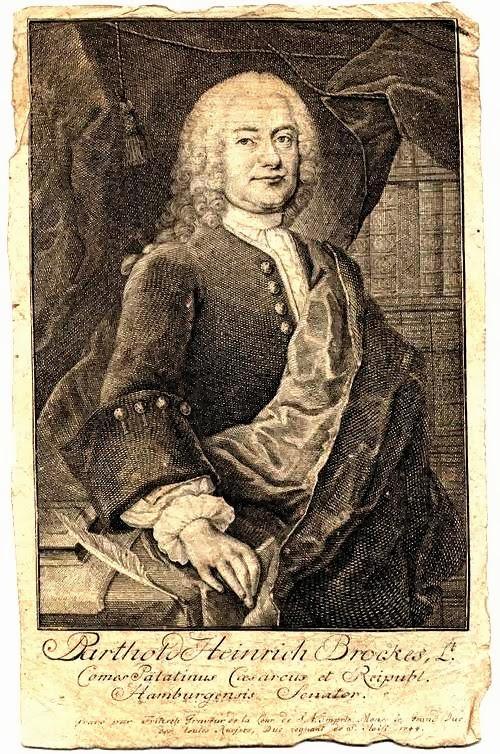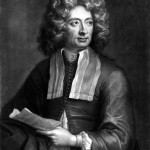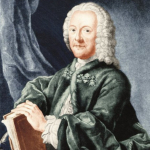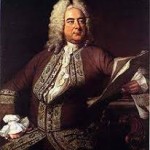 “The fool lives poor to die rich.” – B.H. Brockes
“The fool lives poor to die rich.” – B.H. Brockes
When I first arrived in Hamburg –I think it was around 1991–, I had the feeling of belonging to that Hanseatic city. It was as if I had ever been there before. For me it was also the first time I went out of the country I was born, Spain. This, of course, if I don’t count my visits to the south of Portugal with my parents as a child —I don’t know why, but I think Spanish people, at least me, we consider that going to Portugal is not going abroad. Obviously, back then I didn’t know that the familiarity raised in me by the city of the Alster lakes would have any kind of link, if any, with my musical listenings later in my life. Strangely enough, over the years, those musical listenings have taken me back to the origins of my first adventure abroad. It is as if all those endless walks I took around the city —strolling around beautiful cemeteries, going through backstreets most German locals wouldn’t dare to pass through, gazing at the waters of the immense Elbe, walking in the churches to listen to organ music— would have been the prelude to all those “musical walks” I have taken over the years by listening to the music of different composers. Those recordings, for some reason, have been linked to the city where, paradoxically, there are no “hamburgers”. What we call ‘hamburger’, it is called Frikadelle by the Hamburgers (it was the German immigrants arriving in the United States at the end of the 19th century who introduced a dish that the Americans called ‘Hamburg steak’; then it became ‘hamburger’ or its short form ‘burger’). So, if you really want to try the authentic “hamburger” in Hamburg, you need to ask for a Frikadelle in one of the many street food stalls or restaurants.
It was precisely in Hamburg where Barthold Heinrich Brockes (1680-1747) was born five years before Johann Sebastian Bach was born in Eisenach. Brockes died in Hamburg three years before Bach would die in Leipzig. Brockes was a writer, a poet and a politician of the beginnings of the German Enlightenment. As a young man, he travelled extensively to Italy, France and the Netherlands. He was a member of the Hamburg senate and an imperial count palatine. Brockes fought for women’s emancipation through education. In 1712, he wrote a poem entitled Der für die Sünden der Welt gemarterte und sterbende Jesus (The Story of Jesus, Suffering and Dying for the Sins of the World), known as the Brockes Passion. It is an oratorio in verse, very popular in its time, which was set to music by many composers. Among those composers, I want to highlight three of them: Reinhard Keiser (1674-1739), Georg Philipp Telemann (1681-1767) and Georg Friedich Händel (1685-1759).
 Reinhard Keiser developed most of his career in Hamburg. A very prolifc opera composer —Johann Mattheson described him as “the greatest composer of opera in the world”—, Keiser may be the first one to set the Brockes Passion to music in 1712. His composition became a reference for many other composers who came along after him. His Passion was well performed by many, including Johann Sebastian Bach who lived hundreds of kilometres away in Leipzig. By the way, Bach never set the Brockes poem to music, because he was not allowed by the Leipzig Council —they wanted him to stick to the Biblical literalism. If I had to recommend a recording of this work by Keiser, no wonder that would be the Brockes Passion performed by the vocal ensemble Vox Luminis and the Belgian ensemble Les Muffatti conducted by Peter Van Heyghen on the music label Outhere. This performance is, simply put, exceptional.
Reinhard Keiser developed most of his career in Hamburg. A very prolifc opera composer —Johann Mattheson described him as “the greatest composer of opera in the world”—, Keiser may be the first one to set the Brockes Passion to music in 1712. His composition became a reference for many other composers who came along after him. His Passion was well performed by many, including Johann Sebastian Bach who lived hundreds of kilometres away in Leipzig. By the way, Bach never set the Brockes poem to music, because he was not allowed by the Leipzig Council —they wanted him to stick to the Biblical literalism. If I had to recommend a recording of this work by Keiser, no wonder that would be the Brockes Passion performed by the vocal ensemble Vox Luminis and the Belgian ensemble Les Muffatti conducted by Peter Van Heyghen on the music label Outhere. This performance is, simply put, exceptional.
 Four years later, in 1716, the most prolific composer of all composers in history, Mr Georg Philipp Telemann, was the one to set the Brockes poem to music. Back then, Telemann was working as a music director of the city of Frankfurt, around 500 km away from Hamburg. Five more years had to go by until Telemann definitively settled down in Hamburg, in 1721. He remained there until he died in 1767 —he only left the city for eight months, between 1737 and 1738, when he went on a trip to Paris. Telemman was a friend of Reinhard Keiser. As for Telemann’s Brockes Passion, the recording of reference for me is, undoubtedly, René Jacobs on Harmonia Mundi with the RIAS Kammerchor Berlin and the Akademie für alte Musik Berlin.
Four years later, in 1716, the most prolific composer of all composers in history, Mr Georg Philipp Telemann, was the one to set the Brockes poem to music. Back then, Telemann was working as a music director of the city of Frankfurt, around 500 km away from Hamburg. Five more years had to go by until Telemann definitively settled down in Hamburg, in 1721. He remained there until he died in 1767 —he only left the city for eight months, between 1737 and 1738, when he went on a trip to Paris. Telemman was a friend of Reinhard Keiser. As for Telemann’s Brockes Passion, the recording of reference for me is, undoubtedly, René Jacobs on Harmonia Mundi with the RIAS Kammerchor Berlin and the Akademie für alte Musik Berlin.
At the same time as Telemann, but much farther away from Hamburg, Georg Friedich Händel was composing his version of the Brockes Passion in London. Händel was the most international of the three composers. Born in Germany and naturalized in  England, Händel travelled to Hamburg in 1703 where he was admitted to the Oper am Gänsemarkt (the present Hamburg State Opera) as a violinist and harpsichordist. It was there when he met Reinhard Keiser among other musicians. Then, Händel travelled to Italy and he even “italianized” his name: Giorgio Federico Hendel. There he took in the style of the Italian opera. In 1710, Händel returned to Germany as a director of music for the prince-elector of Hannover, who would later become George I of England in 1714. Händel settled down in England from 1712. The funny thing is that if you would ask a Briton to name a British classical music composer, they wouldn’t doubt to answer: Handel! Likewise, a German would say Händel is a German composer… Coming back to year 1716, the thing is that Händel composed his Brockes Passion in London. Then he sent the score to Hamburg, to the house of Barthold Heinrich Brockes, where most probably it was performed for the first time. Händel’s composition may be better known than Keiser’s and Telemann’s. For Händel’s Brockes Passion, the recording I recommend is the one on Carus performed by Kölner Kammerchor and the Collegium Cartusianum conducted by Peter Neumann.
England, Händel travelled to Hamburg in 1703 where he was admitted to the Oper am Gänsemarkt (the present Hamburg State Opera) as a violinist and harpsichordist. It was there when he met Reinhard Keiser among other musicians. Then, Händel travelled to Italy and he even “italianized” his name: Giorgio Federico Hendel. There he took in the style of the Italian opera. In 1710, Händel returned to Germany as a director of music for the prince-elector of Hannover, who would later become George I of England in 1714. Händel settled down in England from 1712. The funny thing is that if you would ask a Briton to name a British classical music composer, they wouldn’t doubt to answer: Handel! Likewise, a German would say Händel is a German composer… Coming back to year 1716, the thing is that Händel composed his Brockes Passion in London. Then he sent the score to Hamburg, to the house of Barthold Heinrich Brockes, where most probably it was performed for the first time. Händel’s composition may be better known than Keiser’s and Telemann’s. For Händel’s Brockes Passion, the recording I recommend is the one on Carus performed by Kölner Kammerchor and the Collegium Cartusianum conducted by Peter Neumann.
The chronological order of these three pieces corresponds, in this case, to my order of preference as well: Keiser, Telemann and Händel. The three musicians, for different reasons, are linked to the city where there are no “hamburgers”. And although Johann Sebastian Bach didn’t work in Hamburg and neither set he the poem of Barthold Heinrich Brockes to music, this city will indirectly remain linked to Bach by winds of fate: Telemann was the godfather of Carl Philipp Emanuel Bach, the son of Johann Sebastian Bach, and when Telemann died in 1767, his godson replaced him as a music director of the five most important churches of the City of the Elbe. Who knows, maybe J. S. Bach also thought: Half a ‘hamburger’ is better than none!
Michael Thallium
Global & Greatness Coach
Book your coaching here
You can also find me and connect with me on:
Facebook Michael Thallium and Twitter Michael Thallium
